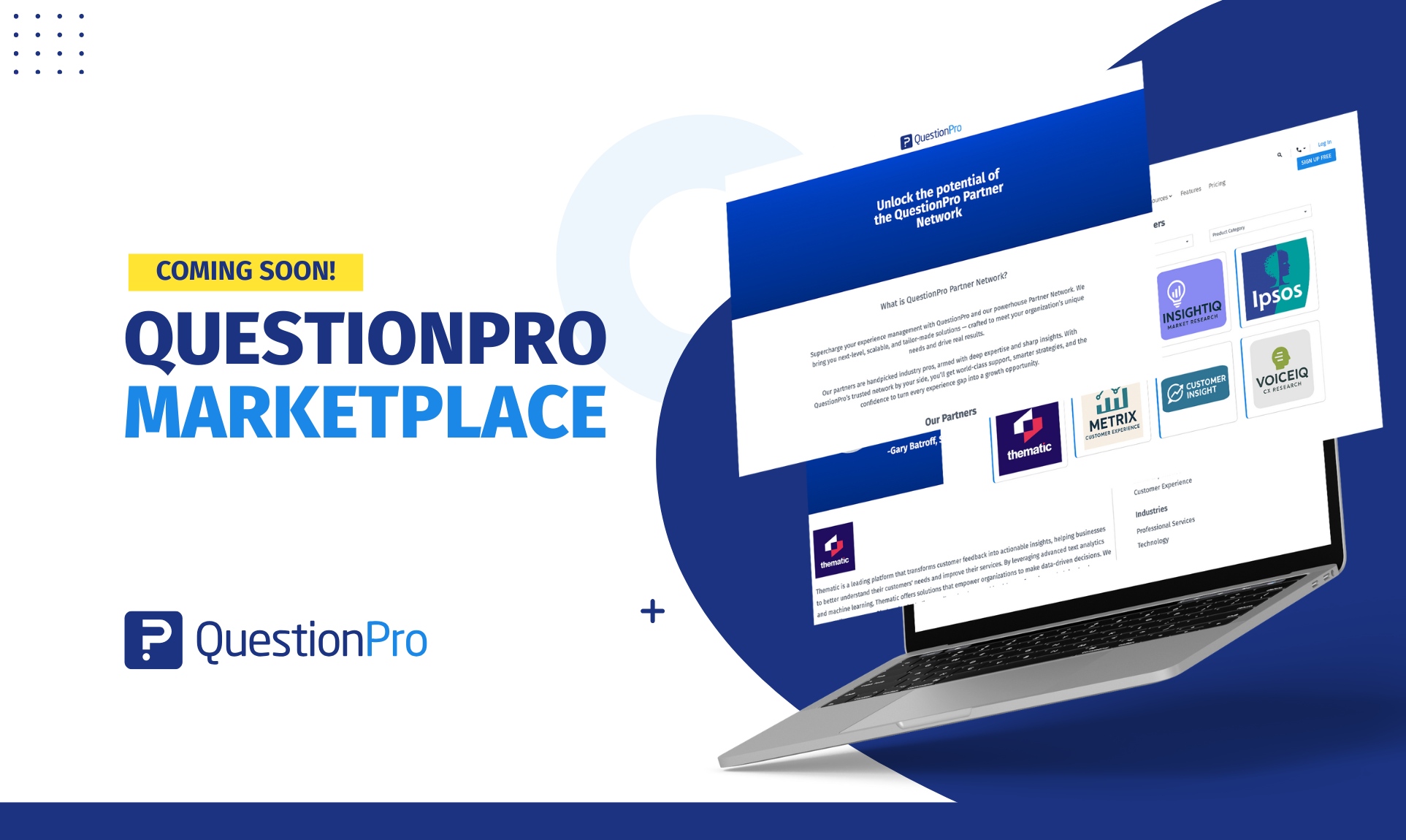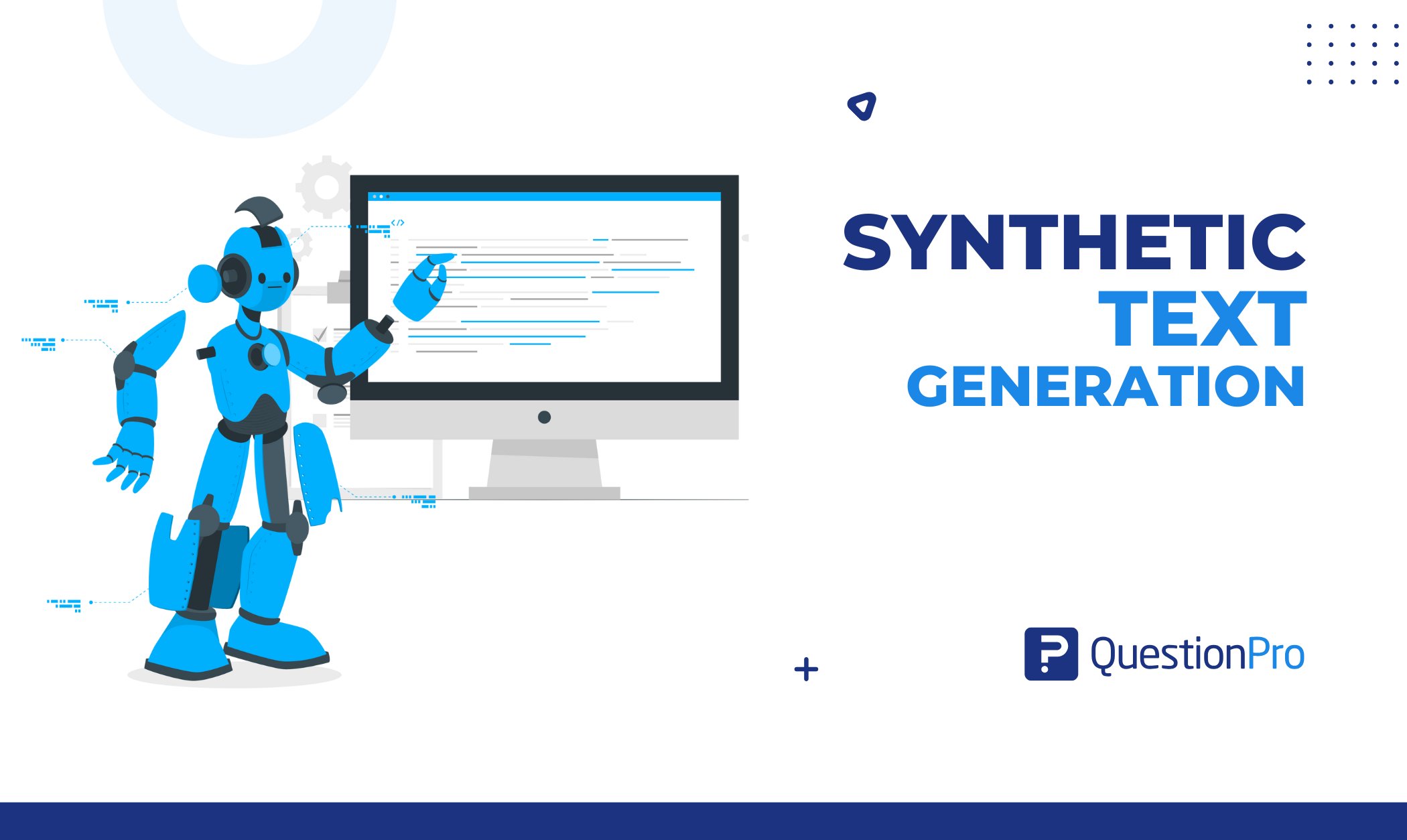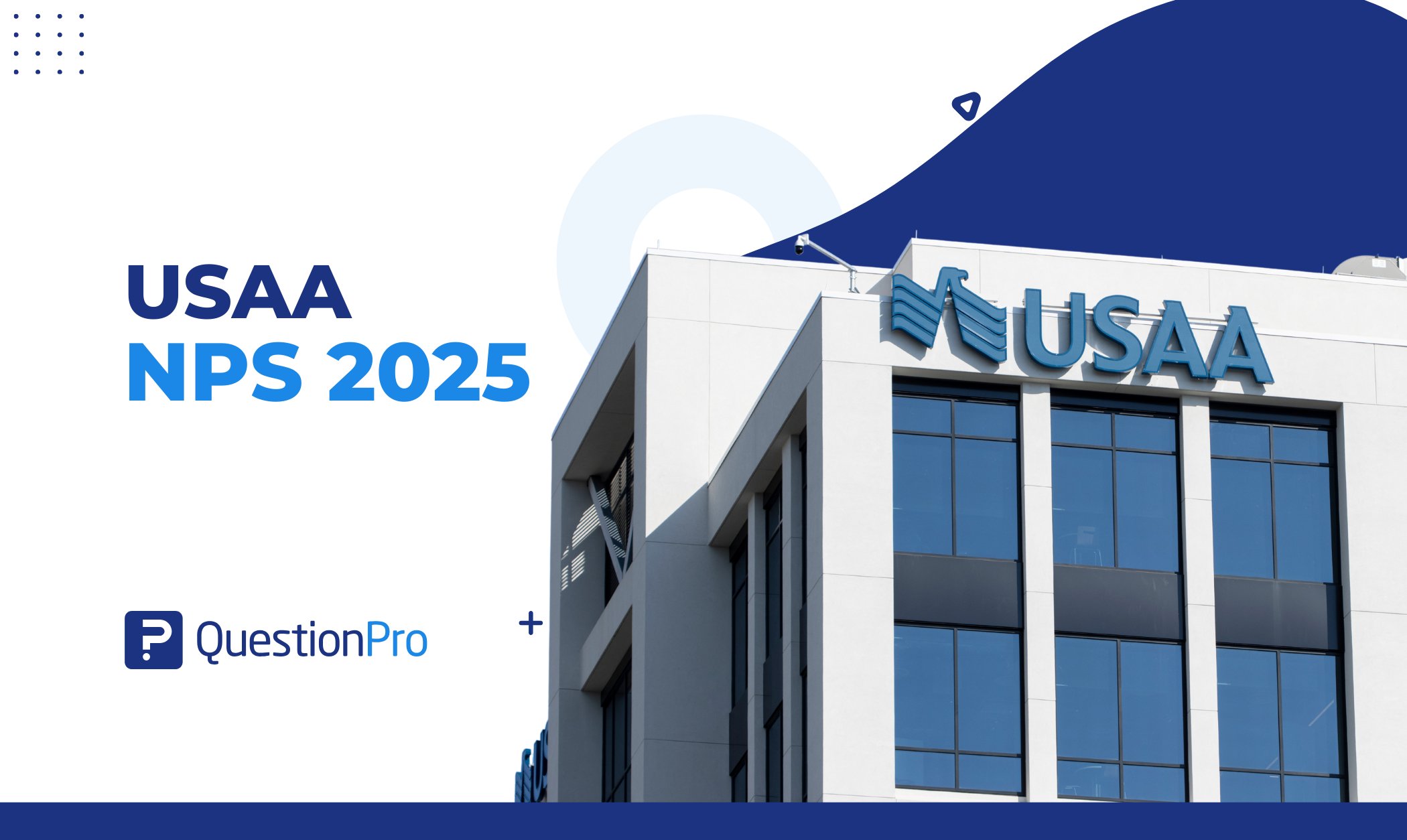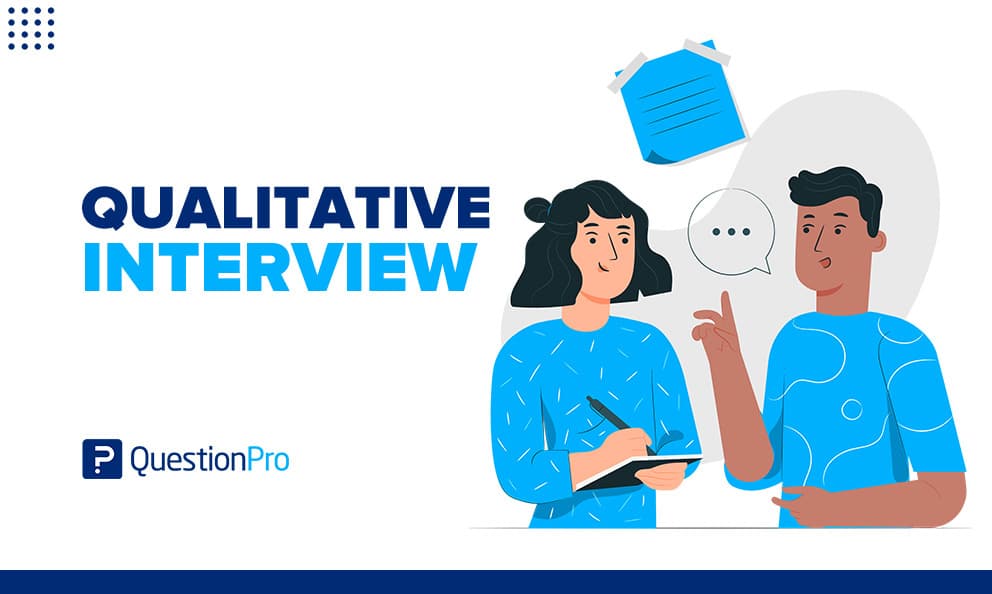
A qualitative interview is commonly used in research projects involving new products, brand positioning, purchase dynamics, market research, social research, behavioral analysis, exploring market segments, etc. Recent data also suggests that it is highly effective when used in employee engagement initiatives.
It has also proven to be extremely helpful when it comes to problem definition as well as developing an approach to a particular problem.
What is a Qualitative Interview?
A qualitative Interview is a research approach used in a qualitative study where more personal interaction is required and detailed in depth information is gathered from the participant. Qualitative interviews usually involve follow-up questions and are conducted in a conversation or discussion format.
A qualitative interview is a more personal form of research agenda compared to general questionnaires or focused group studies. Such formats often include open-ended and follow-up questions.
LEARN ABOUT: Behavioral Research
How to conduct a Qualitative Interview?
Conducting a qualitative interview requires careful planning and implementation to ensure that you gather meaningful and rich data. Here are some steps to consider when conducting a qualitative research interview:
- Define your research methods & objectives:
Clearly define the purpose of your qualitative interview and the specific research method questions you want to address. It will help you design appropriate research interview questions and interview guides for your data analysis.
- Recruit participants:
Identify the target population or specific individuals who can provide valuable insights related to your research questions. Consider criteria such as demographics, expertise, or experiences that align with your research methods and objectives. Use appropriate methods, such as purposive sampling of data collection, to recruit participants who can offer diverse perspectives.
- Obtain informed consent:
Before conducting the interview, ensure that participants understand the purpose, procedures, and potential risks or benefits of their involvement. Obtain their informed consent, clearly explaining their rights as participants, including confidentiality and their ability to withdraw from the study at any time.
- Develop an interview guideline:
Prepare a flexible in depth interviews guide that includes a set of open-ended interview questions for an interview participant. The guide should be designed to elicit participants’ perspectives, experiences, and insights related to your research objectives for conducting interviews. Consider using probing techniques to encourage participants to elaborate on their responses and explore different dimensions of the topic.
- Comfortable environment:
Select a suitable location for the in depth interviews that is comfortable, private, and free from distractions for an interview participant. Create a relaxed and welcoming atmosphere to help participants feel at ease and encourage open communication for qualitative interviewing. Establish rapport and build trust with participants by introducing yourself, explaining the purpose of conducting interviews, and actively listening to their responses.
- Conduct the interview:
Start by asking introductory questions to establish a rapport with the participant. Follow the qualitative interview guide, but remain flexible and responsive to participants’ responses. Allow participants to speak freely and provide detailed answers, using probing techniques to delve deeper into their experiences, emotions, and perspectives. Take notes or record the interview (with participants’ consent) to capture accurate and detailed information.
- Respect participants’ perspectives:
Show respect for their experiences and perspectives, even if they differ from yours. Avoid making judgments or imposing your own beliefs during the interview. Create a non-judgmental and inclusive environment that encourages participants to share their thoughts and feelings honestly.
- Transcribe and analyze the data:
Transcribe the interview recordings or review your notes promptly after each interview while the details remain fresh. Analyze the qualitative data using appropriate methods, such as thematic data analysis, to identify patterns, themes, and insights. Ensure that the data is anonymized and handled following ethical guidelines.
By following these steps, you can conduct a qualitative research interview that facilitates rich and meaningful discussions, resulting in valuable data analysis for your research process.
LEARN ABOUT: Research Process Steps
Types of Qualitative Interviews
The interview itself can be conducted over multiple formats. Qualitative researchers can employ several types of qualitative interviews based on their research objectives and the nature of the study. Here are some popular types of qualitative interviews:
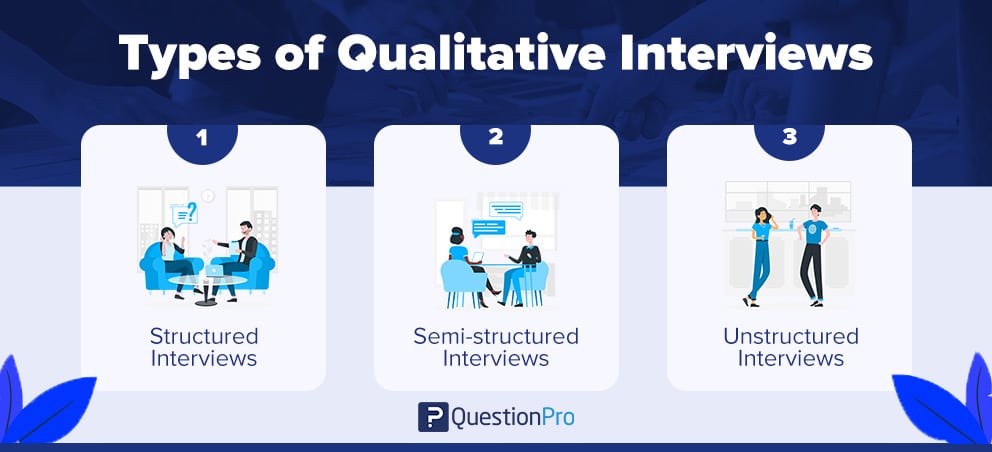
- Structured Interviews:
Structured interviews involve a predetermined set of questions that are asked in the same order and manner to each participant. The questions of structured interviews are typically closed-ended or have limited response options. This type of interview is proper when researchers aim to collect specific information in a standardized way, allowing for easier comparison and analysis of responses across participants.
- Semi-Structured Interviews:
Semi-structured interviews combine predetermined questions with flexibility for additional probing and follow-up questions. Researchers have a set of core questions to guide the interview but can adapt the interview data collection process based on participants’ responses. This type of approach allows for a deeper exploration of participants’ experiences, thoughts, and perspectives while maintaining some standardization level.
- Unstructured Interviews:
Unstructured interviews involve open-ended questions and a free-flowing conversation between the interviewer and the participant. The interviewer may have a general topic or area of interest but allows the conversation to evolve naturally. Unstructured interviews provide a high degree of flexibility and allow participants to express themselves more freely, often leading to rich and nuanced data.
Each qualitative interview type has its strengths and is suited for different research purposes. Researchers or a research team should carefully select the appropriate type of research interview that aligns with their research objectives, the nature of the phenomenon under investigation, and the population being studied.
LEARN ABOUT: Structured Question
Advantages of Using Qualitative Interviews
Qualitative interview techniques offer several advantages as a research method. Here are some of the key advantages:
- In-depth exploration:
A qualitative interview allows researchers to delve deeply into participants’ experiences, perspectives, and opinions. Using open-ended questions and probing techniques, researchers can uncover rich and detailed information beyond mere surface-level responses. This in-depth exploration provides a comprehensive understanding of the research topic.
- Flexibility:
Qualitative interviews offer flexibility in adapting the interview data collection process to the specific needs of each participant. Researchers can tailor their questions, follow-up probes, and overall approach based on the participant’s responses, allowing for a more personalized and engaging research experience. This flexibility enhances the quality and richness of the data collection.
- Participant perspectives:
Qualitative interview prioritizes the voices and perspectives of participants. Through interactive and conversational exchanges, participants can express their thoughts, emotions, and beliefs in their own words. This approach ensures that the research captures individuals’ nuanced and diverse experiences, offering insights that may not be obtained through other methods.
- Contextual understanding:
A qualitative research interview provides a holistic understanding of the social and cultural context surrounding participants’ experiences. Researchers can explore the factors influencing participants’ perspectives, such as cultural norms, societal expectations, or personal histories. This contextual understanding enhances the interpretation and analysis of the data, providing a comprehensive view of the research topic.
- Sensitive and complex topics:
Qualitative interviews are particularly effective when studying sensitive or complex topics. It allows participants to share their experiences and emotions in a safe and confidential environment, facilitating a deeper exploration of potentially challenging subjects. This method also enables researchers to capture these topics’ nuances, contradictions, and subtleties, contributing to a more comprehensive understanding.
- Participant empowerment:
Qualitative research interviews can empower participants by giving them a voice and acknowledging the value of their experiences. By actively listening and engaging in meaningful dialogue, researchers validate participants’ contributions and foster a sense of ownership over their narratives. This empowerment can positively affect participants’ self-esteem, self-reflection, and personal growth.
Overall, qualitative interview provides researchers with a powerful tool to explore complex phenomena, gain in-depth insights, and understand the subjective experiences of individuals. By capitalizing on the advantages of this method, researchers can generate valuable and nuanced data that contributes to the advancement of knowledge in their respective fields.
Learn more by reading our guide: Types of Interviews.
Disadvantages of a Qualitative Interview
While a qualitative interview has many advantages, it is essential to acknowledge their potential limitations. Here are some of the disadvantages associated with qualitative interviews:
- Subjectivity and researcher bias:
Qualitative interviews involve interaction between the researcher and participants, which introduces the possibility of subjective interpretations and biases. Researchers may unintentionally influence participants’ responses through questioning techniques, non-verbal cues, or personal beliefs. Researchers must be aware of their biases and take steps to minimize their impact on data collection and analysis.
- Limited generalizability:
The findings from qualitative research interviews are typically based on small sample size and specific context, making it difficult to generalize the results to a larger population. While qualitative research aims to provide an in-depth understanding, it may need more statistical representativeness than quantitative research methods offer. Therefore, when applying qualitative interview findings to broader populations or contexts, caution must be exercised.
- Time-consuming and resource-intensive:
Qualitative interviews can be time-consuming and require substantial resources. Conducting in depth interviews, transcribing data, and analyzing the qualitative data are labor-intensive tasks that require significant time and effort. Researchers must be prepared for qualitative interviews of a detailed and time-consuming nature, especially when working with large or diverse participant samples.
- Validity and reliability concerns:
Ensuring the validity and reliability of qualitative research interviews can be challenging. Validity refers to the extent to which the interview data accurately represent participants’ experiences and perspectives, while reliability relates to the consistency and replicability of the findings. Factors such as interviewer bias, participant recall, and social desirability may compromise the validity and reliability of the data. Researchers must employ rigorous methodologies, triangulate data from multiple sources, and establish trustworthiness to enhance the credibility of their findings.
- Time and context constraints:
Qualitative interviews capture participants’ experiences and perspectives at a specific time and within a particular context. However, these experiences may evolve or change over time or in different contexts. Researchers must be mindful of the limitations of capturing participants’ experiences, recognizing that their findings may only partially represent the dynamic nature of human behavior and perceptions.
Despite these disadvantages, qualitative interviews remain a valuable research method that offers unique insights into individuals’ experiences and perspectives.
Learn About: Steps in qualitative Research
Conclusion
Qualitative interviews are valuable for gaining in-depth insights into individuals’ experiences, perspectives, and behaviors. They offer a unique opportunity to explore complex phenomena, uncover rich narratives, and understand the underlying meanings and interpretations that individuals assign to their experiences.
To summarize, Qualitative Research can either be a valuable tool to discover problems or help elevate any research programs with subjective data or leave researchers with amorphous and contradictory data. The key is to use the approach in combination with other qualitative and quantitative research techniques to enhance the depth of the data gathered.
.
Authors: Harpal Singh & Shabeen Shareef





